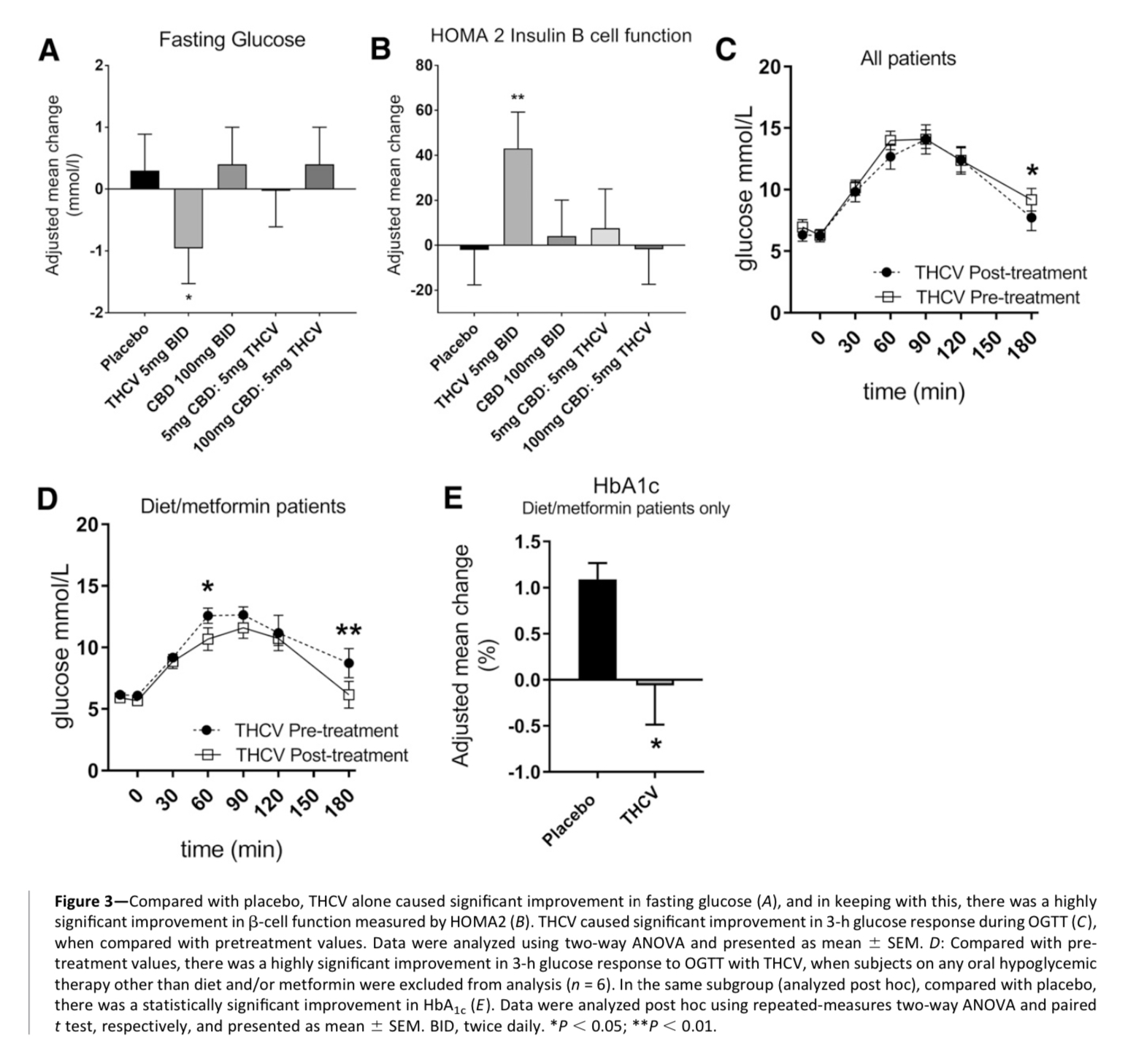CBD and THCv Show Promise in Treating Type 2 Diabetes
A review of the 2016 study: Efficacy and Safety of Cannabidiol and Tetrahydrocannabivarin on Glycemic and Lipid Parameters in Patients With Type 2 Diabetes: A Randomized, Double-Blind, Placebo-Controlled, Parallel Group Pilot Study
DOI: 10.2337/dc16-0650
Researchers have observed that, Cannabidiol (CBD) and Tetrahydrocannabivarin (THCv), may have potential therapeutic benefits for people with Type 2 Diabetes.
In this randomized, double-blind, placebo-controlled study, 62 subjects with non-insulin-treated type 2 diabetes were randomly assigned to five treatment arms: CBD (100 mg twice daily), THCv (5 mg twice daily), 1:1 ratio of CBD and THCv (5 mg/5 mg, twice daily), 20:1 ratio of CBD and THCv (100 mg/5 mg, twice daily), or matched placebo for 13 weeks.
The primary change was in HDL-cholesterol concentrations from baseline. Secondary/tertiary outcomes measured included changes in glycemic control, lipid profile, insulin sensitivity, body weight, liver triglyceride content, adipose tissue distribution, appetite, markers of inflammation, markers of vascular function, gut hormones, circulating endocannabinoids, and adipokine concentrations. Safety and tolerability were also evaluated.
Compared with placebo, THCv significantly decreased fasting plasma glucose and improved pancreatic b-cell function, adiponectin, and apolipoprotein A, although plasma HDL was unaffected. Compared with baseline (but not placebo), CBD decreased resistin and increased glucose-dependent insulinotropic peptide. CBD and THCv were well tolerated.

Results of THCv on blood glucose
The findings from this study suggest that THCv could represent a potential therapeutic agent for managing Type 2 Diabetes. It is thought to work by modulating other cannabinoid receptor activity, which could have beneficial metabolic effects without psychiatric effects. CBD also has multiple desirable effects in the context of hyperglycemia, mainly through its anti-inflammatory and anti-oxidant properties, which could help reduce body fat content, increase energy expenditure, and reduce fasting insulin and insulin response to oral glucose tolerance test (OGTT).
More research is needed to further explore the potential of CBD and THCv in treating type 2 diabetes, but this study provides promising evidence that these compounds could help improve glycemic control and other metabolic problems.
Interested in seeing if these cannabinoids help you manage your symptoms?
Check out Energetic Jane, our combination CBD and THCv coffee that delivers pain relief along with energy and focus.
